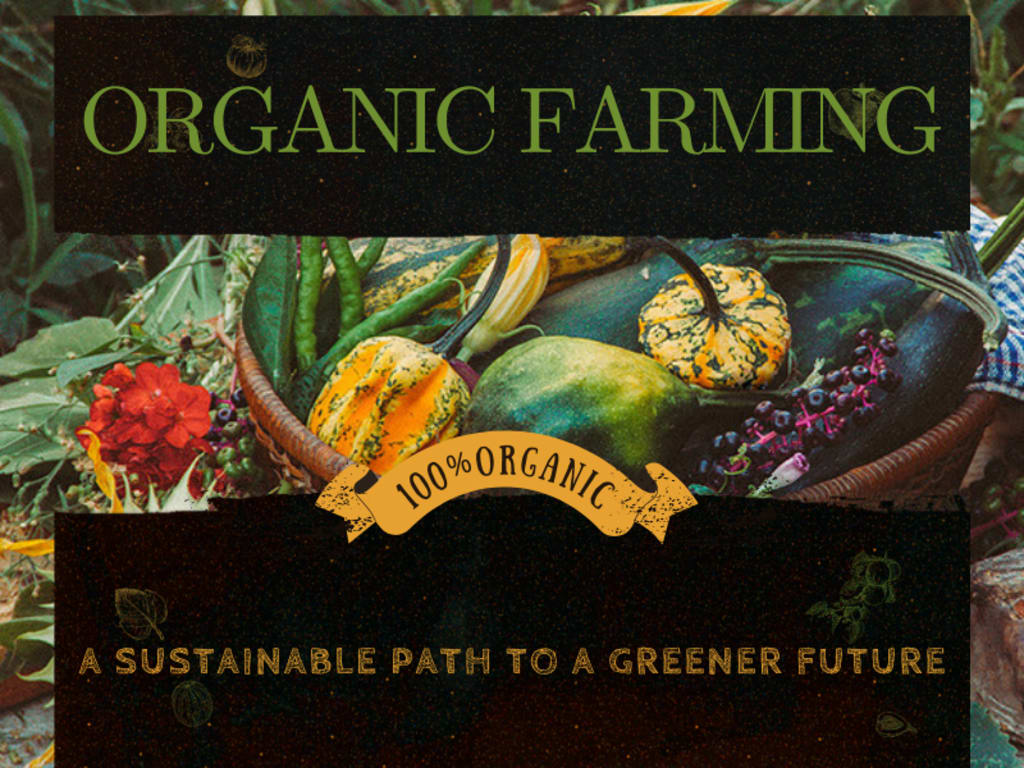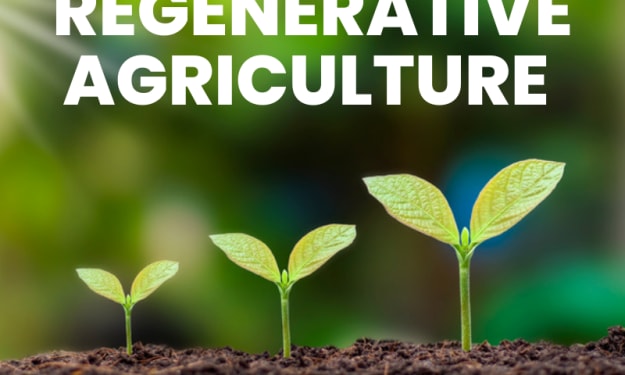
Introduction
In an era marked by environmental concerns and the quest for healthier lifestyles, organic farming has emerged as a sustainable alternative to conventional agricultural practices. Organic farming fosters ecological balance, soil health, and the cultivation of wholesome, chemical-free food by prioritizing natural approaches over synthetic inputs. In this article, I'll explore the numerous benefits of organic farming and provide practical insights on implementing sustainability in agricultural practices.
The Benefits of Organic Farming
Environmental Preservation:
Organic farming prioritizes the conservation of natural resources and biodiversity. By avoiding synthetic pesticides and fertilizers, it minimizes soil and water pollution while promoting healthier ecosystems. The absence of genetically modified organisms (GMOs) also safeguards genetic diversity and preserves natural seed varieties.
Soil Health and Fertility:
Organic farming emphasizes the use of organic matter, crop rotation, and biological pest control. These practices enhance soil structure, nutrient content, and microbial activity, ensuring long-term soil fertility. Additionally, the avoidance of synthetic chemicals helps maintain beneficial organisms, such as earthworms and microorganisms, that contribute to soil health.
Healthier Food and Safe Consumption:
Organic farming prohibits the use of synthetic pesticides, herbicides, and growth hormones. As a result, organic produce tends to have lower levels of pesticide residues, making it a healthier option for consumers. Organic farming also promotes the production of nutrient-rich crops, as the emphasis is on soil health and natural inputs.
Support for Local Communities:
Organic farming often aligns with local food systems, fostering community-supported agriculture (CSA) initiatives and farmers markets. By purchasing organic produce from local farmers, consumers contribute to the local economy, strengthen community ties, and reduce the carbon footprint associated with long-distance food transportation.
Implementing Sustainability in Organic Farming
Soil Management:
Prioritize soil health through practices such as crop rotation, cover cropping, and the addition of organic matter. These techniques enhance soil fertility, structure, and water-holding capacity while reducing erosion and nutrient runoff.
Natural Pest and Disease Management:
Employ integrated pest management (IPM) strategies that focus on preventive measures and biological control methods. This includes the use of beneficial insects, crop diversity, trap cropping, and physical barriers to minimize pest damage.
Composting and Nutrient Recycling:
Implement a composting system to recycle organic waste and enrich the soil with nutrient-rich compost. This reduces the reliance on synthetic fertilizers and fosters a closed-loop system that promotes sustainability.
Water Conservation:
Efficient water management techniques, such as drip irrigation and rainwater harvesting, can help conserve water resources. Timely watering, mulching, and optimizing irrigation practices contribute to water conservation while supporting plant health and minimizing water wastage.
Community Engagement:
Engage with local communities, participate in farmers markets, and consider community-supported agriculture models. These initiatives foster a direct connection between farmers and consumers, promoting sustainable food systems and supporting local economies.
In concluding, organic farming offers a multitude of benefits for both the environment and human health. By prioritizing ecological balance, soil health, and the production of chemical-free food, organic farming represents a sustainable path to a greener future. Through implementing practices that focus on soil management, natural pest control, nutrient recycling, water conservation, and community engagement, farmers can embrace sustainability in their agricultural operations. As consumers, supporting organic farming and making conscious choices contribute to a healthier planet and a more sustainable food system for generations to come.
About the Creator
Kady K
Greetings, fellow knowledge seekers!
Thank you for joining me on this captivating journey, where the notion that knowledge is indeed a potent force, is embraced.
Together, let us embark on an enlightening adventure!





Comments
There are no comments for this story
Be the first to respond and start the conversation.